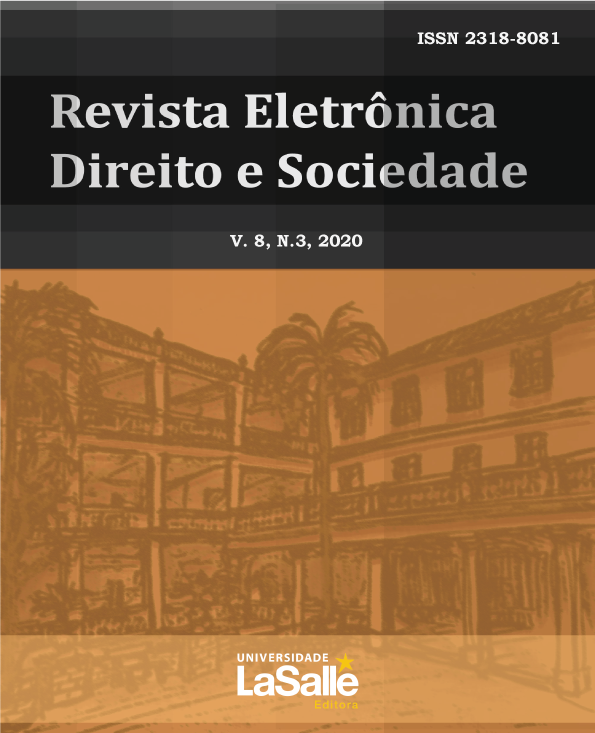Judicialization of science and the expansion of the activity of the Judiciary: an analysis in the light of the precedents of the Brazilian Supreme Federal Court
DOI:
https://doi.org/10.18316/redes.v8i3.5366Keywords:
Judicialization of Science, Expansion of the Activity of the Judiciary, Precedentes, Federal Supreme Court of Justice.Abstract
This work aims to reflect on the use of scientific knowledge as a subsidy for judicial decision making, in addition to expert evidence, seeking to understand how the relationships between legal knowledge and science were built in the decision - making the process of the courts. The objective is to understand how the scientific argument becomes relevant in the context of the constitutional jurisdiction, making the scientific capital object of the judges and other social actors who make up the scene of the Judiciary. From a literature review on the characteristics of the contemporary sciences and the phenomenon of the judicialization of politics as a reference, it was possible to establish a dialogue with the jurisprudence of the Federal Supreme Court and to understand the dimensions of the judicialization of science: as support or subsidy to legal interpretation, as a constitution of the judicial controversy itself and as an inoffensive method of decision. The reciprocal implications between scientific capital and the legal system evidenced a potentialization of uncertainties, but also a possibility of dialogue between law and science. The work was developed from the combination of bibliographical research, including literature reviews on modern science and on the judicialization of politics, and case-law analysis, based on selected judicial precedents from the Federal Supreme Court both in the scope of diffuse judicial review (Action 937 / RJ) and in the concentrated / abstract judicial review (ADI’s 4 and 3510).
Downloads
Published
Issue
Section
License
Authors who submit their manuscripts for publication in the “REDES” Magazine agree to the following terms:
The authors claim to be aware that they retain copyright by giving “REDES” the right to publish.
The authors declare to be aware that the work submitted will be licensed under the Creative Commons Non-Commercial Attribution License which allows article sharing with acknowledgment of authorship and publication in this journal.
The authors declare to be aware that by virtue of the articles published in this journal have free public access.
The authors declare, under the penalty of the law, that the text is unpublished and original and that they are aware that plagiarism has been identified, plagiarized authors will be informed - willingly, to take legal action in the civil and criminal sphere - and, plagiarists will have their access to the magazine blocked.
The authors state that - in case of co-authoring - all contributed significantly to the research.
Authors are obliged to provide retractions and (or) corrections of errors in case of detection.
The authors are obliged not to publish the text submitted to “REDES” in another electronic journal (or not).
The Electronic Journal Law and Society - REDES - is licensed under a Creative Commons License. Attribution-NonCommercial 4.0 International.Based on work available at "http://revistas.unilasalle.edu.br/index.php/redes/about/submissions#copyrightNotice".
Permissions in addition to those granted under this license may be available at http://creativecommons.org/.

